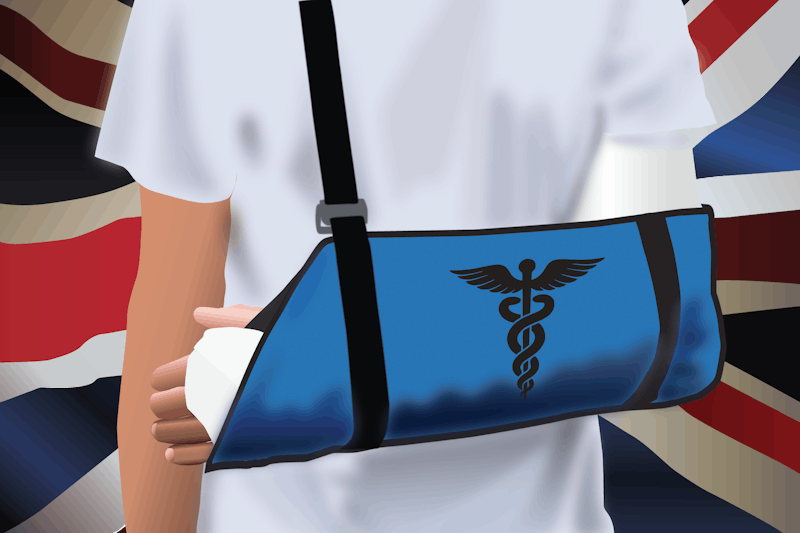Five months ago, my brief lapse in critical thinking led to an accident 4,000 miles away from home.
I was studying abroad in London when a friend and I discovered that if we maneuvered ourselves carefully, we could ride one small bike at the same time. Late one evening, while practicing this foolish party trick, my boot got caught in the spokes and the bike flipped. I immediately broke my arm on impact with the street.
Upon arrival at the emergency room, I was administered medication, scanned for concussions, given two x-rays and a CT scan, put in a cast and sent on my way with a healthy dose of painkillers. Astonishingly from my American perspective, I was not charged a single cent for these procedures.
Perhaps during the exact moment I was receiving this care, the Trump administration was gearing up to pass the “One Big Beautiful Bill Act.” Notably included in the sweeping budget bill was a $1.02 trillion slash in federal spending to Medicaid and Children’s Health Insurance Benefits. By 2034, over 10 million Americans will be cut from the programs.
The policy disparity between nations is staggering and, frankly, embarrassing. The United States spends more money on health care than any comparably developed country by drastic proportions — health care gorged over 17 percent of our overall GDP in 2023 — and yet, our people are plagued by inaccessibility when it comes to essential care.
People in the United States owe hundreds of billions of dollars in medical debt; over 14 million Americans currently owe over $1,000. Medical expenses, furthermore, are at the core of over 65 percent of bankruptcy files according to a study by the National Library of Medicine. Compared to the United Kingdom, where the government-funded National Health Service entitles residents to free public care, we are in nothing less than a state of crisis.
Instead of offering a respite, this bill has the potential to decimate already underserved communities. Disparities in insurance coverage impact Hispanic and Indigenous communities more than any other group in the country, and non-elderly adults and children in rural areas are more likely to rely on Medicaid and Children’s Health Insurance Program than those in urban areas. In the face of these statistics, such drastic slashes are cruel, counterproductive and out of touch with the needs of the vast and diverse majority of all American people.
This is not to say that excess medical spending is not an issue. It certainly is: administrative costs for insurance companies and prescription drug prices alone make up nearly a third of estimated excess health care spending in the United States. But to direct slashes in federal spending to such widely relied-upon programs as Medicare and Medicaid demonstrates only a continued commitment to upholding profiteers at the cost of American health and lives.
Health care is a voter issue that surpasses ideological divisions by brute force alone. No one is completely exempt from the greedy hands of accidents, age or chronic conditions. Food deserts, climate change, cancer-inducing preservatives and the accessibility of fast food will incapacitate our cities before we are even fully cognizant of the impacts. For this reason, it is essential that we commit to looking past partisanship to advocate for what I believe to be an essential human right: compassionate care for our bodies when they fail us.

